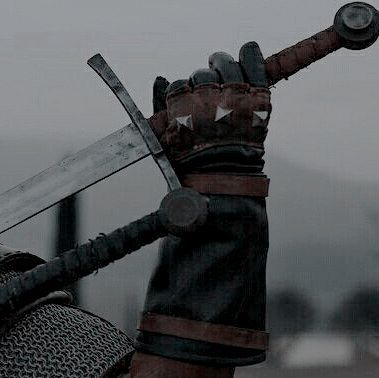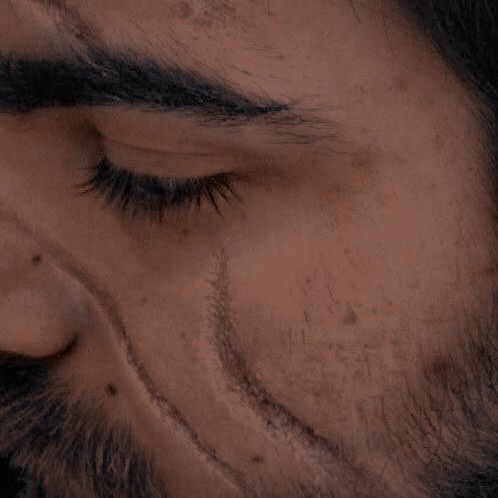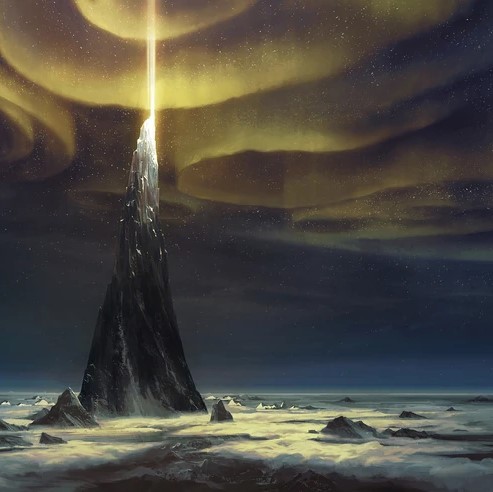#a before-the-aspect canon image of atreus
Explore tagged Tumblr posts
Text









Pantheon, Atreus, the Man
Pantheon Moodboard series: 1 | 2 | 3 | 4
#league of legends pantheon#pantheon league of legends#league of legends atreus#league of legends#league of legends lore#lore of legends#moodboard#my moodboard#HE WANTED TO BE A BAKER GUYS I'LL NEVER FUCKING GET OVER THAT#BABYYYYYYYYYYYYYYYY#yes I do call grown men characters baby don't shame me#I wanted to use a canon one for the center in all of them but I can't for the life of me find#a before-the-aspect canon image of atreus#so like#if you have one feel free to let me know XD#idk ifthere is one really I doubt it#my moodboards
15 notes
·
View notes
Note
Can I ask what draws you to Agamemnon? He's often kind of a difficult figure to grapple with. Sincere question btw, not meant to sound mean I swear :)
NO NO this isn’t mean at all it’s uh. yeah I know it’s an unpopular Take / Opinion and I really do … care deeply about Agamemnon as a character, so thanks for giving me a chance to explain! it’s complicated, he’s complicated… This is gonna get long
I: APPEARANCE Let’s first put the shallow aspects on the table: he’s big, he’s powerful, he’s My Type (physically), I’m gay. This never comes through in film adaptations (although you know what? 1962 Electra Agamemnon comes close, although he’s overshadowed by the hot Aegisthus) but look at how he’s described in the Iliad: He’s compared to 3 gods, canonically Agamemnon is the most handsome man Priam’s EVER seen in his like one million years of life (a list of men which includes Aeneas , Hector, etc). (this post). When Priam says he’s “Every inch a king”, baby, you know what that means-Anyway , @kashuan‘s art is VERY good for conveying how I imagine Agamemnon based on these descriptions. and he’s drawn like exactly my type there. It’s a lot to reckon with.He’s big. He has big arms and big thighs and could kill me if he wanted and he’s powerful and his aristeia is badass and i’m gay. thanks. II: PERSONALITY Now this part is. more about Agamemnon’s character. first, Agamemnon in the Iliad is in fact deeply flawed- he’s imperious and arrogant and shortsighted and short-tempered, he’s stubborn and selfish and ALL OF THE THINGS PEOPLE HAVE SAID HE IS but there’s also a complexity to his character that tends to get flattened - I think because Agamemnon’s at his worst in book 1, people adhere to this AWFUL first impression and don’t bother to look beneath the surface / take the rest of his behavior / his character into account / use this as the baseline of their understanding, but there IS MUCH MORE to him than that behavior even in the Iliad itself, as detailed in THIS POST. He’s a powerful warrior in his own right, and his failings reflect both the internal flaws of his character and the weight of his responsibilities; we see his concern for his men, for the army, the people, in books 4 and 10 (when he can’t sleep because of his anxiety about his men, about Hector). He DOES however, learn and become better, he grows, he’s dynamic: he and Achilles finally make up (book 19! book 23! They’re good now!) and the Odyssey also ends with their ghosts talking as friends.
(Side note I wonder how this works out when Agamemnon’s son kills Achilles’s son but… that’s for another day).
There’s complexity in Agamemnon’s characterization in the tragedies as well, each tragedian has a different portrait of Agamemnon but he’s never one-dimensional.Euripides’ Hecuba has Agamemnon as concerned about his image and his reputation, anxious (and almost insecure) about his authority, but also concerned with justice and the rule of law, even towards one’s enemies. Sophocles’ Ajax portrays an imperious, proud, stubborn Agamemnon who refuses to realize he’s in the wrong but is able to be convinced by the council of Odysseus and eventually, again, comes to an understanding. Seneca’s Trojan Women shows Agamemnon as a Stoic voice of Reason, urging Pyrrhus not to be too violent/hubristic in their victory, and I love both the presentation of Agamemnon as a tired old man wanting to go home and the sort of man who gets into arguments with teenagers about war crimes. As usual, Seneca excels at this subtlety of characterization, this is like the epitome of the Dichotomy of Agamemnon, sympathetic and infuriating, a good leader and a stubborn, proud man, stoic and short-tempered, as present in the Iliad, is here too, and I love it , and him. Seneca’s Agamemnon almost reverses this (HE REALLY SAYS “What can a victor fear”) but I still love that play, and there’s something to be said for the characterization of Agamemnon as someone who learned ABSOLUTELY nothing from victory.
Overall, it’s true that we get, mainly, a portrait of a hard, ruthless, powerful, embittered man- remember how he destroys that one guy Menelaus wanted to save in the Iliad - but he has a sort of “aggressive charisma” as Kashuan once put it and I REALLY see it, and honestly that in itself has some sort of an appeal to me. But with this portrait of his personality, his softer aspects, the moments of gentleness we see, are more striking, they really stand out and indicate the extent of his feelings. In the iliad, for example, we clearly see he loves Menelaus and while he’s almost laughably over-protective (MORE ON THIS LATER), his care for his brother is evident, touching, especially juxtaposed with his shortsighted selfishness. Just look at what happens in Book 4, when Menelaus is barely wounded and Agamemnon is practically writing his eulogy. Right afterwards, also, “Noble Agamemnon showed no reluctance, no cowardice or hesitation, only eagerness for the fight where men win glory”- he rushes in to fight (but not before first taking out his anxiety on his men by demanding more from them. Cannot do anything appealing / good without mitigating it with irritating behavior. love this fool). It takes him like 9 books to finally apologize to Achilles but he defends Menelaus from Nestor’s reproach in book 10, is anxious about Menelaus being in danger if he’s picked to go on a night raid with Diomedes (HERE) and is endearingly not-subtle about it, frets over him in book 4, when he’s wounded, etc.
The love for his family is something that continually stands out and is perhaps his main “redeeming” trait. In the Odyssey, as mentioned, he ask Odysseus desperately about Orestes with heart-rending choice of words especially when one considers Orestes’s Actual Fate: “Come tell me, in truth, have you heard if my son is still alive, maybe in Orchomenus or sandy Pylos, or in Menelaus’ broad Sparta: that my noble Orestes is not yet dead?”. Agamemnon’s no longer a king- he’s a worried father, he regrets the most not being able to see Orestes before he’s killed; it is this pain, of not being able to be a father to his children, which seems to cut the most deeply, which he speaks of multiple times to Odysseus. Then they just cry for a while, with each other. (I like these tender aspects hidden in a big mean man.. but I also like his big meanness).
the Tragedies take this to another level, of course, to drive home the PATHOS required for his death to have an impact but his love of his family is very much on display there. Iphigenia in Aulis in particular provides us with some agonizing demonstrations of this love: Iphigenia reminisces about an exceptionally tender moment in their relationship, when she was young (you used to ask me, “I wonder, my darling, will I get to see you married one day, married and settled happily in your husband’s home, your life ever blossoming, making me proud of you?” And I’d touch your chin, my father, hang from your beard, father, like I’m doing now and say, “and what about you, father, will I get to see you, father, an old man, visiting me at my house, ready for me to repay you for your hard work in raising me?”) an image hard to reconcile with the merciless violence and stubborn arrogance Agamemnon displays in the Iliad (BUT AGAIN, THAT’S THE APPEAL). Clytemnestra assumes he’s crying because he’s sad to see Iphigenia leave them, Agamemnon’s messenger tells him the arrival of his family will cheer him up: even his subordinates know how important they are to him.
I’d need a whole nother post to talk about his relationship with Clytemnestra but please peruse these crumbs I picked off the ground (HERE). they Had something, tbh the tragedy ONLY WORKS if they did and I will DIE on this hill. In Aeschylus, Clytemnestra calls Orestes the “mutual pledge of their love”, he calls her a “great-hearted woman”, she shirks in Aulis at his curt, demanding tone towards her, noting it as something out of character, she takes charge anyway, knows he can’t or won’t actually force her not to be involved in the Iphigenia marriage preparations-All of this creates an image of a man whose imperious, ruthless, stubborn character is balanced with a surprising capacity for tenderness, a genuine fondness and love for the members of his family, which makes the fact that his hand, albeit forced, aids in its destruction, that much more devastating.III: PSYCHOLOGY/HISTORY
Where things get especially interesting for me, character-wise, is when one thinks about his lineage, his past, and his childhood with respect to his current character. This section is about the House of Atreus in general.
Agamemnon clearly bears the scars of his environment: he was born into the House of Atreus and IMO that informs everything he says and does, all his thoughts and feelings, the way he perceives both the world and his place in it. Seneca’s Thyestes is a horrific portrait of what Agamemnon (and Menelaus’s) childhoods must have been like, ATREUS is their father, they were old enough during this event to almost be accomplices which means they’re clearly old enough to remember it. Speaking of that, Atreus isn’t worried that participating in his god-crime schemes will turn his sons evil because, in his mind, they were born evil (Ne mali fiant times? nascuntur. God GOD). Agamemnon and Menelaus grow up in a nightmare house, adjacent to atrocity, under the almost comically cruel hand of Atreus who sincerely believed his sons inherited said cruelty as if its on the same chromosome as the “house-curse” gene. It’s genuinely a miracle Agamemnon and Menelaus grew up to be functional fucking human beings, in my opinion. It also gives a lot more weight to his relationship with Menelaus and the hard imperious cast of his character; their bond was forged in fire, Agamemnon likely protected Menelaus from the worst of Nightmare House being the older brother, and being as protective as he is. There’s this one Iliad adaptation, I can’t think of it off the top of my head though, where when Agamemnon’s freaking out about Menelaus being Barely Wounded he says “don’t die… for you are all I have” and that’s absolutely how I think about their relationship in this context- Menelaus WAS all he had for so long, they clung to each other, they preserved their humanity in the face of horror BECAUSE OF each other.
But functional like.. .for a given value of “function”. Agamemnon is clearly deeply affected by these events, the weight of the Curse of the House of Atreus clearly impacts him. Take Iphigenia in Aulis, where he says “each one is born with his bitterness waiting for him”, the fact that a Son of Atreus would say that, I think, speaks to the innate, unspeakable fear of the certain destruction of his world, of the tragedy that awaits him, at his own hands, of the House-Curse waiting perched on his shoulder to strike just when he thought he’d created something impenetrable. The tragedy of Iphigenia in Aulis is Agamemnon’s realization that he has locked himself into this, that he has no other choice (see: this post about the Odysseus impact, there is in fact a point when it’s inevitable, although he still made the first move which makes it even WORSE he created this, etc) and all he can do at this point is watch as the life he so carefully built for himself and his family collapses around him, just like he must have always dreaded it would. (Also in the Iliad It’s Agamemnon who says “We must toil, in accord with the weight of sorrow Zeus loaded us with at birth” and that reminds me of this aspect of him too: Good Things Never Last, Bad Things Never Die, etc.)
It’s made clear that the story of Atreus and Thyestes is widespread, familiar; Teucer in Sophocles’ Ajax and Neoptolemus in Seneca’s Trojan Women both call out Agamemnon for trying to reference his lineage as a source of authority because it is a HORRIFIC lineage. “I know about the famous family of Atreus and Thyestes”, Neoptolemus says. And THEREIN LIES A CONFLICT: Agamemnon’s sense of self comes from his authority, his kingship, his position of power and his social status as a member of the nobility, of the class of royalty BUT. It’s all undercut by the fact that this power, authority, indeed his very identity is based in cruelty, violence, and crime; Agamemnon is descended from the most ignoble nobility, which he knows all too well.
It’s Interesting that Agamemnon’s relationship with his identity, status, family, power is brought up in Ajax, of all plays, primarily concerned with the destruction of Ajax’s identity- reminding Agamemnon of the crimes of his house genuinely cuts him down. I see Agamemnon as a man who genuinely fears his past, who dreads the legacy of his father and in his desperation creates a crisis for himself (as happens in tragedy).
We (I) laugh at Agamemnon “forgetting” about the god-crime shit before he pulls rank by referencing his Authority and Status but there’s something in Agamemnon continually being owned by forgetting about the House…. Agamemnon wants to distance himself from the “legacy” he inherited from Atreus, but he can’t without disavowing his power, his authority, his identity. Whether he likes it or not (he does Not), this is fundamental to who he is. I feel like that knowledge too lurks in his mind, rises to the forefront occasionally at his lowest points-
Clytemnestra in Aeschylus’s Agamemnon pretty clearly sees him / his actions as the next link in the god-crime family chain, a continuation of the house -curse, heir to his father’s throne and his crimes, hence her belief that killing him is the only way to end it/ stop the cycle of violence (spoiler she is wrong but there’s another post coming eventually about how they are Very Similar Characters short version the Etruscans Understand).
IN short, I think there’s a lot of complexity in Agamemnon people overlook, or don’t get to see since they don’t read the peripheral plays. Agamemnon seems to me a man in conflict with himself, a Man of Contradictions, who defines himself by his authority and status while fearing the source of it, whose devotion to his family contrasts with the horror of his childhood, and with his own agonizing role in its destruction, a man who willfully ignores or cannot bring himself to fully interact with the legacy of Atreus, who tries to distance himself from the crimes of his house and the cruelty of his father while being reminded of both every time he’s called by the epithet Atreides.
#the iliad#the oresteia#tagamemnon#agamemnon#is complicated...#hes GENUINELY A BAD PERSON WITH MANY HORRIBLE QUALITIES DO NOT GET ME WRONG!!! BUT LIKE I SAID#I like the big meanness w/ the tenderness.... and please take into account also that im shallow and hes big and im gay#the house that dripped blood#important ... content
82 notes
·
View notes